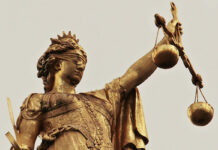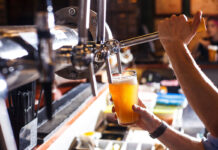If your customers can hear music, you can’t shake off music licensing
If you play any form of music in your pub, bar, restaurant, hotel or members’ club in Scotland you will need to have ‘TheMusicLicence’
A polite nudge on gaming machines in pubs – follow the rules!
The Gambling Commission and local authorities can visit undercover to check on pub puggie compliance
Will airside licensing laws ever be brought back down to earth?
Whilst premises ‘airside’ are exempt from the requirement of a premises licence, this does not mean licensing offences cannot be committed
TLT to take on licensing files following Brunton Miller closure
The Law Society of Scotland has been contacted by a ‘large number’ of Brunton Miller clients – hundreds may be affected.
Steps licensees should take to check they are World Cup ready
The question for licensing boards is 'will there be boogie woogie all night long in premises up and down the country?'
Festive season brings its own licensing challenges for operators
Plan now to maximise your trading times and to avoid enforcement issues – these festive tips will help ensure it is the season to be jolly!
Anti-terrorism measures are coming to Scottish hospitality venues
Martyn’s Law does not prescribe a one-size-fits-all solution – but expects venues to adopt ‘reasonably practicable’ measures.
Factors to consider to ensure licensing compliance in outdoor areas
"As a licensing solicitor, I get an upsurge in compliance issues that track the mercury rising! Here are my top tips to ensure you are covered for summer..."
Scottish Pubs Code gives tied publicans options – but think carefully
Tied pub leases have been a feature of Scotland’s hospitality sector for hundreds of years, but new legislation could mean significant changes.
First tranche of Scottish Pubs Code legislation comes into force
The first section of the code is now in force, with the remaining provisions – governing rent reviews and market rent-only leases – due to go live on 30th June.



























